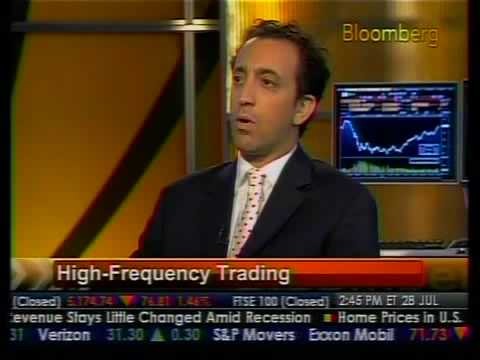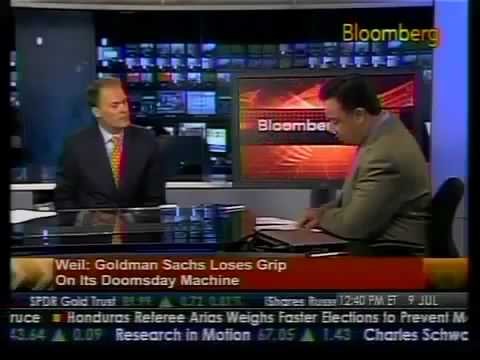What Is HighFrequency Trading Here s What The Whole Debate Is All About In Plain English
Post on: 16 Март, 2015 No Comment

Photo: Tony Greenberg
Even when something dramatic happens in the world of high frequency trading (HFT), its hard to hold on to the issue and have a clear conversation.Perhaps thats because its a really difficult topic to put in plain English. Nothing about HFT is simple.
These are trades based on computer algorithms designed by PhDs and used by the most sophisticated investors in the world. They can fire off as quickly as every 20 milliseconds.
There was brief surge in the conversation last week when one former Goldman trader, Haim Bodek, told the SEC that stock exchanges are giving high frequency trading firms an advantage over average investors. That brought up all kinds of questions about how, maleficence aside, trading at high speeds impacts market volatility. Suddenly the Street was buzzing about HFT — there was a hearing about it in the Senate too.
Then it all just kind of faded.
But HFT affects everyone in markets, as it account for about 60% of the trades that are made in the stock market right now.
So Heres The Basic Argument Surrounding HFT
The basics: As Mark Cuban pointed out in his blog, the purpose of Wall Street is to create a marketplace where companies, large and small, can find investors and grow. Investors want to find good companies that they can put their money in so it can grow. The question at hand is whether or not HFT helps or hinders that.
So Heres What Some People Love About HFT:
HFTs champions say that HFT adds volume and liquidity to market. That means there are more investors out there, moving faster and buying more. So if you want to sell, youll likely find someone out there who wants to buy. They also say it tightens spreads (the difference in asking price for an equity at any given time).
Most importantly, according to Keith Ross, the CEO of PDQ Enterprises (a company that operates an alternative trading system called PDQ ATS) it makes the market more efficient and less risky.
If I can put in an order every second I can get a certain distribution, as a market maker. If I can put in 10 orders a second, I will get filled on some percentage but my distribution will be much smoother and because Im getting my fill sooner, Ross explained. I can adjust my algorithm to deal with that new inventory so I actually create a better risk profile… because of that efficiency I can actually make a better market.
Moreover, Ross pointed out, HFT is already regulated by FINRA and the SEC. Any more intervention from Congress — if they dont understand whats really going on — could be harmful, rather than helpful.
If there are issues in the marketplace, many of these are perceived issues, and many of these problems are anecdotal rather than factually based — I got a bad fill on a trade and I dont know why type thing, said Ross.
On The Other Hand, Heres Why Some People Think Theres Something Seriously Wrong With HFT:
HFTs detractors, say that in this super fast game, momentum rules and finding value in companies takes a back seat. That means money is being pushed to popular large cap companies and small to mid cap companies arent getting a shot at finding investors.
Then theres the volatility HFT trades/algorithms gone bad can cause in the market in a matter of moments. When David Lauer, a HFT consultant for Better Markets, testified before Congress last week, he cited multiple instances when stock market crashes could be traced back to problems with HFT.
In fact, he pointed out, mini crashes happen all the time (from his testimony):
Mini flash crashes occur on a near-daily basis in individual stocks. Nanex has documented almost 2,000 instances of individual irregularities in stocks since August 2011 Single-stock circuit breakers have failed to stem the tide of these incidents.
All that aside, theres what detractors say predatory HFT programs do to regular investors. Its something traders blog and chat about it daily, but its hard to understand if you dont speak Wall Street.
Thats why Business Insider asked Garrett, a trader and outspoken critic of HFT (check out his work here and here ) to illustrate some alleged HFT predatory practices as simply as possible.
He told us to imagine we were at a grocery store:

Say youre supermarket and they want to buy a gallon of milk for $5, said Garrett. But as soon as you go to the register its $5.05, and instead of selling you the gallon its 3/4 of a gallon…Traders have an expectation with the bid that we see, then we place our orders and suddenly we get 3/4 of what we wanted for a higher price. And then they (HFT advocates) tell us theyre making it (the market) better for us because its cheaper and easier.
According to Garrett, predatory HFT programs can do this because theyre watching investors and logging their tendencies to predict what theyll do next. Once HFT programs know that, they can figure out how to manipulate investors by, say, putting in orders they never intend to fill.
While youre walking (around the grocery store) there are surveillance cameras checking you out. The HFTs are filling up the lines. Theres a time stamp placed on a person when theyre walking up to cash out. When you stuff a bunch of people ahead of them, the supermarket will have problems keeping order in the line. Thats what happening — they see us walking up.
And then, if the market cant keep order in line at all, theres a crash.
Theres nothing wrong with cancelling your order, Garrett added, but when youre using it for manipulation… thats something bad.
And, according to HFT detractors, thats just one example of the many ways predatory HFT programs can manipulate investors.
So What Do We Do?
One answer to that question is nothing. Everythings fine.
The industry representatives testifying on Capitol Hill last week, however, wouldnt agree.
Here are a few things they suggested to make HFT simpler, more transparent, and less focused on speed, as Andrew Brooks, T. Rowe Prices Head of Equity Trading put it.
- Install kill switches for times when HFT programs go haywire.
- Require drop copies — essentially digital confirmations that trades have been made so everyone can keep track.
- Require more robust testing for new software — now, the SEC only suggests it, though to be fair, HFT firms have a serious incentive to get it right.
- Impose fees on cancelled trades.
Prepare for a long, confusing jargon-filled slog on this issue. As it goes on, just try to hold on to the basics for dear life.














